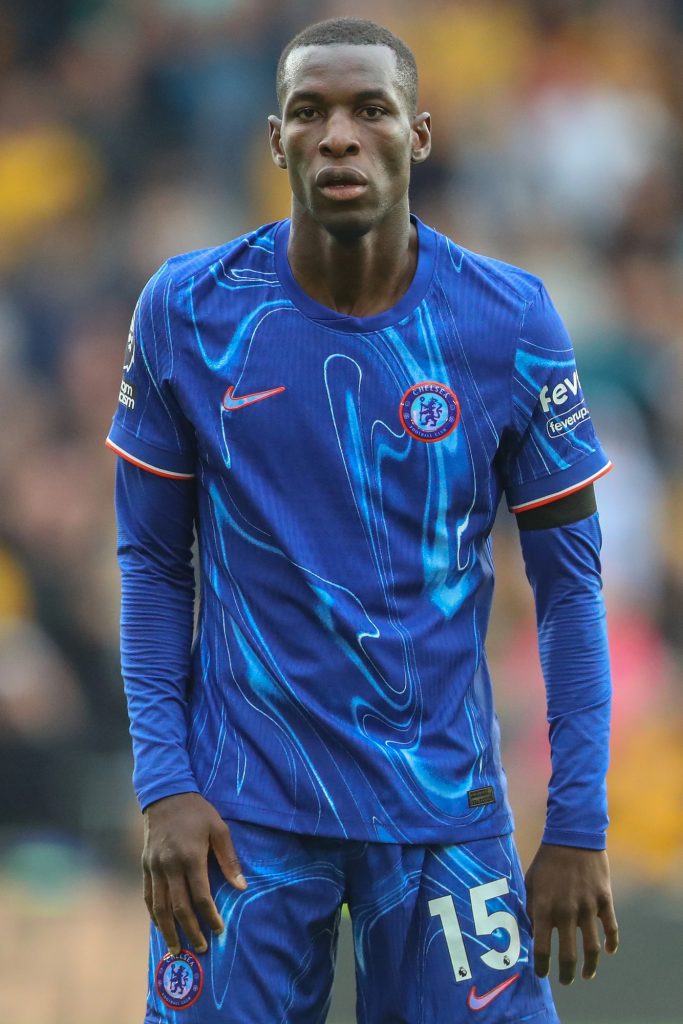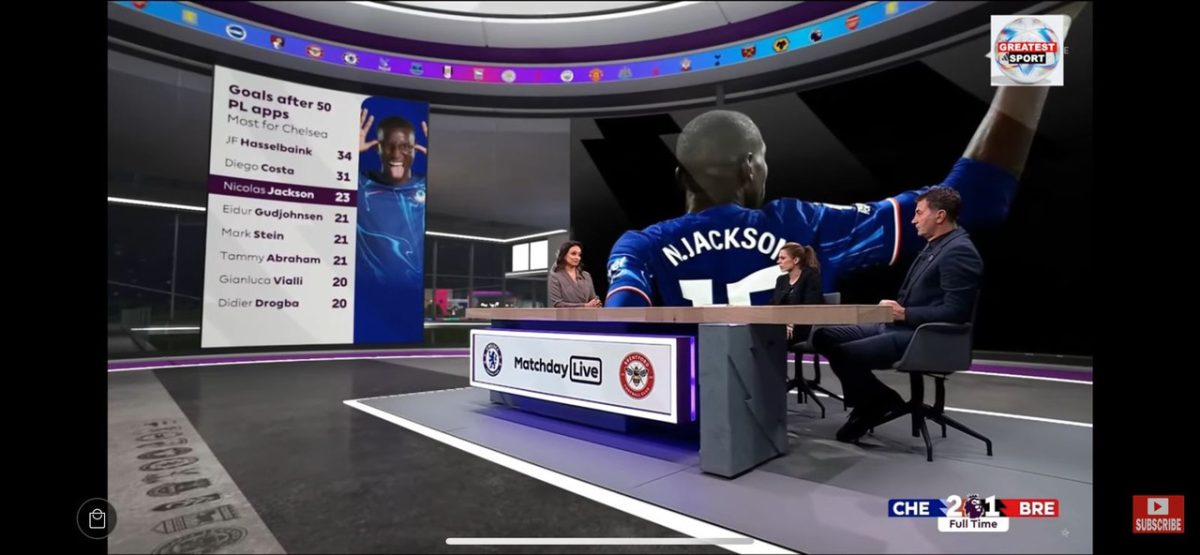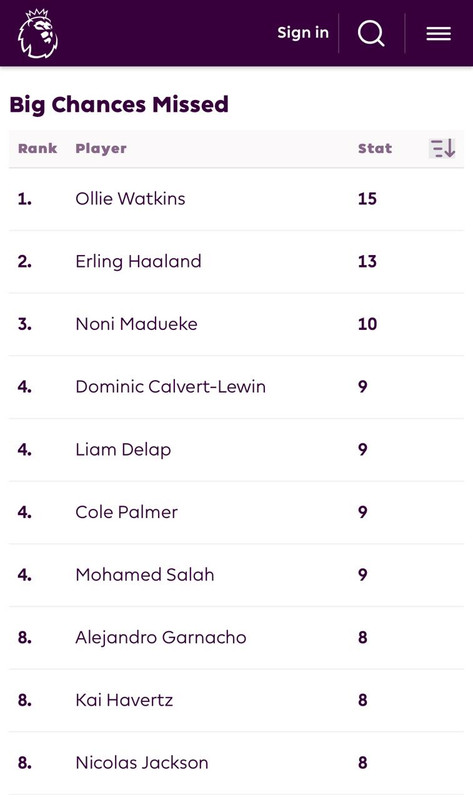Football commentary thrives on bold statements, honest assessments, and occasionally, the kind of verbal theatrics that fuel fan debates for days. However, when Tim Sherwood, former Tottenham player and manager, described Chelsea striker Nicolas Jackson as playing “like a rapper” after the Blues’ victory against Brentford this weekend, the discourse shifted from football analysis to accusations of racism, microaggressions, and bias.
Social media erupted with fans dissecting not just Jackson’s hot-and-cold performance but Sherwood’s choice of words. While Sherwood tried to soften the blow later, the damage was done—leaving us with a flurry of opinions, reactions, and one underlying question: Why was this comment necessary?
Soccer Aid, Rapper, and Backhanded Compliments
Sherwood’s comments came during post-match analysis of Chelsea’s game against Brentford this weekend, wherein the London outfit won 2-1 thanks to goals from Marc Cucurella and Nicolas Jackson.
When discussing Jackson’s glaring miss in the game, host Seema Jaiswal asked Sherwood about this hot and cold nature associated with Jackson, despite his goal and Chelsea’s victory, and Tim began with a familiar critique, branding Jackson’s inconsistency in front of goal as frustrating, but his choice of comparison was bizarre. Sherwood quipped that Jackson “sometimes plays like a Soccer Aid player, a rapper, or an actor.”
For context, Soccer Aid is a popular charity football match that brings together celebrities, actors, and ex-professionals to raise money for UNICEF. While the event celebrates entertainment and goodwill, comparing a current Premier League striker to celebrities known for their acting or musical skills—especially in a dismissive tone—was seen as disrespectful and unnecessary.

Where the remark became particularly controversial was Sherwood’s use of the word “rapper.”
Fans quickly pointed out the racial undertones in this comment. Hip-hop, and by extension rap music, originated in the African and African-American communities in the USA, deeply intertwined with Black culture. Historically, this association has been weaponized in harmful stereotypes linking Black individuals—particularly those of African descent—to rappers or entertainers, often diminishing their identity and professional credibility.
Nicolas Jackson, a Senegalese striker, is of African descent, which made Sherwood’s choice of words feel racially charged to many fans. While Sherwood may not have intended to be offensive, the optics of linking Jackson’s inconsistency to being a “rapper” sparked accusations of implicit bias. Critics questioned why Sherwood chose this particular comparison when Jackson’s race and heritage were undeniably at play.
Sherwood didn’t stop there. Realizing the heat his comment might generate, he added a backhanded compliment, stating:
“I like that he runs a lot for the team. He’s good at running in behind, creating chances, and you know if he misses one, he’ll keep going and score the next. He gives his all for the team.”
But this saving grace came too late. By leading with “rapper,” Sherwood had already cast his lot, sparking accusations of racial undertones and microaggressions. The attempt to balance it out with praise only highlighted how avoidable this situation could have been.
From there, the internet took over.
Fan Reactions: Racism, Microaggressions, and Frustration
The “Rapper” Comment: A Step Too Far
One fan summed up the general sentiment: “‘A rapper’ is so unnecessary.”
Many questioned whether Sherwood would have made such a remark if Jackson were white. One comment hit hard: “Would he have said that if he was white, hmm?”

This highlights a broader issue—microaggressions in football commentary, where racial stereotypes creep into discussions about Black players. Labelling Jackson as a “rapper” rather than simply critiquing his footballing flaws felt not just insulting but entirely irrelevant.
“This is racism.”
Another fan didn’t mince words, calling out both Sherwood and the Premier League: “This is racism. He’s always been a Spurs idiot but this is way way too far… This is disrespectful, insulting, and demeaning. Please take action immediately.”
The Spurs-Chelsea rivalry may have played a part in Sherwood’s tone as he has ties with Spurs both as a manager and player, but for many, that didn’t excuse the comment. Sherwood’s phrasing moved beyond football critique into territory that made fans uncomfortable.
Dividing Opinions: Was Sherwood Just Being Honest?
Some fans defended Sherwood’s broader critique, albeit begrudgingly: “He was spot on, have you seen Jackson’s misses? He scores the harder chances and the ones you expect any professional footballer to score, he misses horribly.”
Another added: “He said 1 moment he’s playing like a world-class CF and the next he looks like a non-footballer, and that miss really sums up Nico.”
But even here, a fan pushed back: “Well, in that case, every striker looks world-class, then another moment looks non-league. If we look at some of Haaland’s misses this season, we can draw the same conclusion.”
This exposed a double standard in football commentary. Jackson’s misses were dissected and amplified, yet players like Darwin Núñez and Erling Haaland—who’ve fluffed similarly big chances—rarely face such comparisons.
The Microaggression Debate
Microaggressions in football are subtle but insidious. One fan put it plainly: “Microaggression, Jackson has to do 10x more than the average striker for any respect.”
Players of color, especially Black athletes, often face disproportionate criticism for their performances. Sherwood’s comment fueled this narrative, with fans feeling Jackson was being unfairly targeted.
The “Whole Video” Defense
A lone voice attempted to defend Sherwood, suggesting his later praise balanced out the initial comment:
“You didn’t see the whole video, don’t judge yet smfh… he said a lot of lovely stuff after.”
The reply? A brutal takedown: “So, finishing it, what he said was okay with you? Clearly, whatever has made your brain this smooth can clear acne.”
This exchange underscored the fact that no amount of “positive” commentary on Jackson later on in the segment and show could erase the sting of Sherwood’s earlier words.
Stats Don’t Lie: A Case for Jackson
Despite the criticism hurled his way, Nicolas Jackson’s numbers tell a very different story when placed in the right context. Firstly, Jackson is the third-highest goalscorer for Chelsea after 50 Premier League appearances, with 23 goals. The only two players ahead of him in Chelsea’s history are legends Jimmy Floyd Hasselbaink (34 goals) and Diego Costa (31 goals). It’s elite company for a striker whose finishing is supposedly “all over the place.”

Beyond his goals, the much-publicized narrative of Jackson missing chances also seems exaggerated when you analyze the data. According to stats for the current season:
• Jackson ranks only 8th in ‘Big Chances Missed’ with 8 chances.
• The striker at the very top? Ollie Watkins, who has missed 15 big chances.
• Erling Haaland, widely regarded as the best striker in the world, ranks second with 13 big chances missed.
• Even Mohamed Salah (9) and Dominic Calvert-Lewin (9) have missed more than Jackson, sitting in 4th place alongside Cole Palmer.
• Another Chelsea player, Noni Madueke, ranks 3rd with 10 big chances missed.

This data highlights a critical point: Jackson is nowhere near the worst offender in terms of profligacy. Yet the “Jackson misses too much” rhetoric has snowballed disproportionately, while players like Haaland and Watkins, despite missing far more, avoid the same level of public scrutiny.
Despite his inconsistencies, Jackson is scoring at an impressive rate. Fans were quick to point this out, with one remark: “Jackson has the most non-penalty goals in the league since 23/24. I’ve seen Núñez and Haaland miss this exact chance many times and never be called a Soccer Aid player.”
This stat not only supports Jackson’s value but also highlights the bias in the criticism he receives.
The Line Between Analysis and Insult
Tim Sherwood’s comments sparked necessary conversations about bias in football punditry. While his initial point about Jackson’s inconsistency had merit, his phrasing—particularly the “rapper” remark—was unnecessary, offensive, and damaging. Fans rightly called out the microaggressions and racial undertones in such commentary, emphasizing that Black players like Jackson often face harsher scrutiny.
Yet, amidst the noise, one thing is clear: Nicolas Jackson is a talent on the rise. He may miss chances, but he works relentlessly, scores difficult goals, and—statistically speaking—is already among Chelsea’s most prolific forwards in their first 50 games.
Football pundits have a responsibility to critique fairly, without veering into stereotypes or bias. Sherwood’s remarks serve as a stark reminder: words matter, and they carry weight far beyond the analysis desk. As one fan aptly put it, “When Jackson misses a chance, the world capsizes. But when it’s another striker, it’s ‘you can’t score every one.’”
Perhaps it’s time football discourse held everyone—players and pundits alike—to the same standard.



